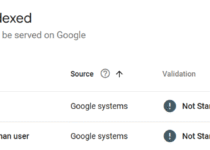Unlocking Success: The Vital Role of Digital Marketing for Businesses
Imagine a quaint family-owned bookstore nestled in a cozy corner of town. For years, its loyal customers have browsed through shelves of timeless classics and the latest bestsellers, enveloped in the comforting scent of paper and ink. But as the world evolved, so did the way people discover and consume information. In this digital age, the survival of businesses hinges on their ability to adapt and thrive in the online landscape.
Once upon a time, traditional marketing channels like print ads, billboards, and TV commercials were the go-to methods for businesses to reach their audience. However, with the advent of the internet and the exponential growth of digital platforms, the paradigm shifted dramatically. Today, the heartbeat of successful businesses echoes through the corridors of cyberspace, where consumers spend a significant portion of their time.
CLICK HERE TO GET A FULL DIGITAL MARKETING COURSE
According to Statista, there are over 4.66 billion active internet users worldwide, comprising nearly 60% of the global population. This staggering figure underscores the immense reach and potential of the digital realm for businesses to connect with their target audience. Furthermore, the rise of smartphones has transformed the way people access information, with mobile devices accounting for over 50% of global website traffic.
In this digital era, consumers are no longer passive recipients of marketing messages; they are active participants in shaping brand narratives. Social media platforms like Facebook, Instagram, and Twitter have become virtual marketplaces where businesses can engage directly with their customers, build relationships, and foster brand loyalty.
The Power of Data-Driven Insights:
One of the most compelling aspects of digital marketing is its ability to provide actionable insights through data analytics. Every click, like, share, and purchase leaves a digital footprint that can be analyzed to understand consumer behavior, preferences, and trends. According to Forbes, businesses that leverage data-driven marketing are six times more likely to be profitable year-over-year.
Through tools like Google Analytics, businesses can track website traffic, monitor conversion rates, and gain valuable insights into the effectiveness of their marketing campaigns. This data-driven approach enables businesses to make informed decisions, optimize their strategies in real-time, and allocate resources more efficiently.
The Personalized Experience:
In a sea of digital noise, relevance is the currency of attention. Consumers are inundated with an endless stream of advertisements vying for their attention, making it crucial for businesses to cut through the clutter and deliver personalized experiences. According to Salesforce, 84% of consumers say being treated like a person, not a number, is very important to winning their business.
Digital marketing allows businesses to tailor their messaging, content, and offers to specific audience segments based on demographics, interests, and behaviors. Whether through email marketing, retargeting ads, or personalized recommendations, businesses can create meaningful connections with their customers and deliver value at every touchpoint.
Conclusion:
In today’s hyper-connected world, the importance of digital marketing for businesses cannot be overstated. From enhancing brand visibility and driving sales to fostering customer relationships and gaining actionable insights, digital marketing is the cornerstone of success in the digital age. As businesses navigate the ever-evolving landscape of cyberspace, embracing digital marketing strategies will be the key to unlocking new opportunities and achieving sustainable growth in the digital era.


